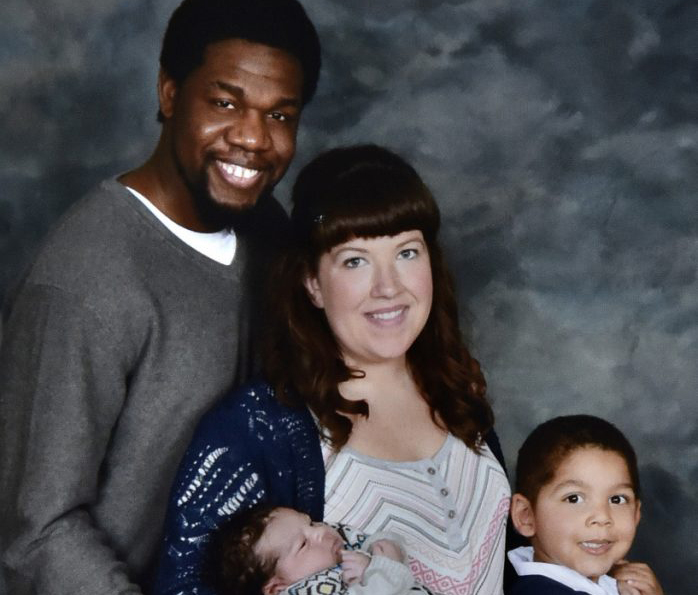Earlier this year, Lexius Saint Martin, a Waterville resident and business owner, was detained by ICE and deported to Haiti because of a drug conviction from 2007.
The decision to deport Saint Martin left his wife, Mindy, and their young children without a husband, father, and provider. Lexius was unceremoniously dumped in a country he’d not lived in since he was a child. He had no money, no job, no proof of identity (ICE had seized his Maine-issued driver’s license), and no place to live. Lexius describes life in Haiti as “worse than jail” or simply “Hell.” Make no mistake, the blame for this tragedy lies squarely with the Trump administration and the president’s policy of enforcing the nation’s broken system of immigration laws to maximize cruelty and spread fear.
Today, the friends and family are drawing attention to another part of Lexius’ story, the story of how he changed his life after his conviction and punishment. Since his release, Lexius has been an absolute model of rehabilitation and reintegration as a productive and law-abiding member of society. Moreover, he has faced extraordinary hardship and suffering and met it with excellent moral character and perseverance.
A decade ago, Lexius pled guilty to his charge and served his sentence. After his release from state custody, he was then detained by ICE for over a year and moved to a facility along the southern border of Texas, cut off from friends and family. In 2010, Haiti was stuck by a devastating earthquake, from which it has still not fully recovered. Because of the disaster, removals to Haiti were halted, and Lexius was released under strict orders of supervision.
After three days of switching buses, Lexius made his way back to Maine. From that point, he focused on bettering himself and living a clean life, free from bad influences, drugs, and criminal activity. He found legal work, fell in love, got married, and started a family. His long hours of cleaning hospitals allowed him to provide for his family, buy a house in Waterville, and enable his wife to leave her job and become a full-time caregiver for the children.
Lexius overcame the hard times and brought warmth and love into the lives of those around him. Dozens of people whose lives were touched by Lexius have written letters and attended rallies on his behalf. Many more, even strangers, have donated money to help support his struggling family. Now, on the harsh streets of Gonaives, he teaches the neighborhood children how to speak English and encourages them to practice basic hygiene and healthy habits.
Like most modern legal theorists, the state of Maine places rehabilitation at the forefront of the mission of the Department of Corrections. There is no finer example of rehabilitation than Lexius Saint Martin. He stayed on the right side of the law, avoided drugs and transformed his life. He worked hard, paid his taxes, focused on providing for and caring for his family. What more could be asked of a person in his position?
If every convicted criminal lived like Lexius Saint Martin did after his release from state custody, Maine would have the most successful criminal justice system in human history.
Today, he is asking for a pardon, for forgiveness of the mistake in his past. He has earned this forgiveness through his choices and his actions, even in the face of overwhelming suffering. His children deserve a chance to know their father and to know that one mistake is not the end of his story. A pardon could accomplish a lot for this Maine family, and it would also speak volumes about the values of the state of Maine and its commitment to rehabilitation.
T. Evan Fisher is a central Maine attorney and human rights advocate who represents Lexius Saint Martin and his family.
Send questions/comments to the editors.




Success. Please wait for the page to reload. If the page does not reload within 5 seconds, please refresh the page.
Enter your email and password to access comments.
Hi, to comment on stories you must . This profile is in addition to your subscription and website login.
Already have a commenting profile? .
Invalid username/password.
Please check your email to confirm and complete your registration.
Only subscribers are eligible to post comments. Please subscribe or login first for digital access. Here’s why.
Use the form below to reset your password. When you've submitted your account email, we will send an email with a reset code.